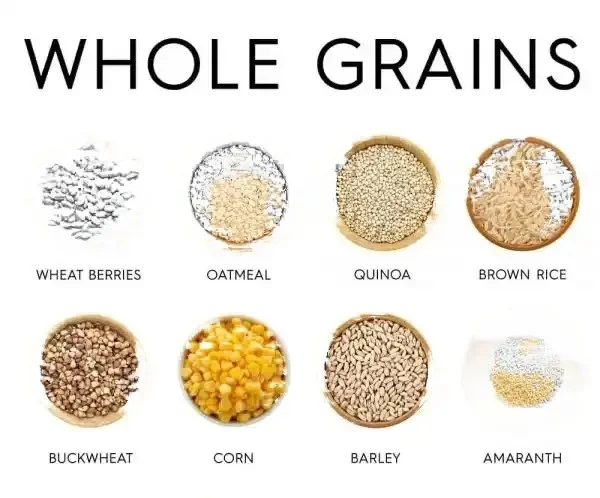The Role of Nutrition in Aging: How to Eat Well to Stay Young
Ageing is an inevitable aspect of our lives. Our choices, especially those related to nutrition, have a significant impact on how we age. Not only does our diet impact our emotions, but it also has an impact on our physical appearance and function.
1.Knowing Nutrition and Ageing
Ageing is characterized by a progressive decline in physiological functions and an increased risk of chronic disorders. The body needs nourishment to sustain internal processes, stay healthy, and potentially even prevent the effects of aging. Therefore, nutrition plays a critical role in controlling the aging process.
2. Embrace Antioxidant-Rich Foods
Antioxidants are chemicals that help fight oxidative stress and lessen the damage that free radicals cause to cells. Age-related disorders and accelerated ageing are linked to this harm. Foods high in antioxidants in your diet can promote general health and help shield your cells.
-Strawberries: Antioxidants and vitamins found in blueberries, strawberries, and raspberries help reduce inflammation and promote mental wellness.
-Leafy Greens: Swiss chard, spinach, and kale are rich sources of vitamins A, C, and K, which are essential for good immune function and healthy skin.
-Nuts and Seeds: Rich in heart-healthy fats and antioxidants, almonds, walnuts, and chia seeds also lower inflammation.
3. Prioritize Healthy Fats
Healthy fats are essential for preserving hormone balance, cognitive function, and overall cellular health. In addition, they aid in the management of inflammation, an important aspect of age-related illness prevention.
-Fat Fish: It has been shown that omega-3 fatty acids, which are found in abundance in salmon, mackerel, and sardines, support heart health and cognitive function.
-Avocados: Avocados are a great source of heart-healthy monounsaturated fats as well as important vitamins and minerals.
-Olive Oil: An excellent source of antioxidants and heart-healthy lipids that lower inflammation and support cardiovascular health.
4. Maintain Muscle Mass with Proteins
Maintaining muscle mass is crucial for general functional ability, strength, and mobility as we age. Protein is an integral component of an ageing-friendly diet since it is necessary for the growth and repair of muscular tissue.
-Lean Meats: High-quality protein without any excess amount of saturated fat can be found in chicken, turkey, and lean beef cuts.
- Legumes: Chickpeas, lentils, and beans are great sources of fibre and protein that helps in maintaining a healthy digestive system.
-Dairy or Alternatives: Protein and vital elements like calcium may be found in Greek yoghurt, cottage cheese, and fortified plant-based milks.
5. Stay hydrated
Drinking enough water is important for maintaining joint lubrication, skin suppleness, and general body functioning, yet it is frequently neglected. It is crucial to intentionally prioritise being hydrated because, as we age, our perception of thirst may diminish.
-Drink water: To keep your body hydrated and support numerous physiological functions, try to consume a lot of water throughout the day.
-Consume Water-Rich Foods: Nutrient-dense food such as oranges, cucumbers, and watermelon help you stay hydrated.
6.Incorporate whole grains
Whole grains are an excellent source of fibre, which aids in digestion, helps in regulating blood sugar level, and supports cardiovascular health.
-Oats: High in soluble fibre, oats can improve heart health by lowering cholesterol.
-Quinoa and Brown Rice: These foods are great options for a balanced diet since they offer vital nutrients and support energy levels.
7. Limit Processed Foods and Added Sugar
Processed foods and added sugars have been linked to weight gain, inflammation, and other health problems that can have a detrimental effect on ageing. It's best to restrict consumption of:
- Sugary Snacks and Drinks: Sugary snacks and drinks, such as soda, can cause blood sugar increases and weight gain.
- Refined Carbohydrates: Because white bread, pastries, and other refined carbohydrates frequently lack fibre and other vital nutrients, they are less advantageous for general health.
8. Focus on Micronutrients
Certain vitamins and minerals become increasingly important as we age. Ensure you get enough of these micronutrients as it support various aspects of health and well-being.
-Vitamin D: Essential for bone health, vitamin D can be obtained from sunlight, fortified foods, and supplements if needed.
-Calcium: Supports bone density and can be found in dairy products, leafy greens, and fortified plant-based milks.
-B Vitamins: Important for energy levels and cognitive function, B vitamins are present in whole grains, meats, and legumes.
9. Practice Mindful Eatingb
Eating mindfully involves paying attention to your body's hunger signals, taking your time, and enjoying the flavours of your meal. By doing this, you can facilitate better digestion, reduce the risk of overindulging, and feel more satisfied after eating.
Conclusion
Ageing gracefully involves a combination of lifestyle factors, with nutrition playing a vital role. By focusing on a balanced diet rich in antioxidants, healthy fats, protein, and essential nutrients, you can support your body’s health and vitality as you age. Making informed dietary choices can help you maintain energy, manage weight, and reduce the risk of age-related diseases, allowing you to enjoy a more youthful and active life.





